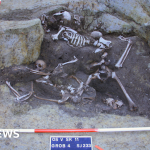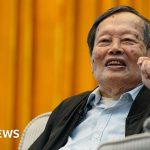
Introduction
Narendra Modi, born on September 17, 1950, is an Indian politician who rose to prominence as the Prime Minister of India in 2014. Known for his charismatic personality and strong leadership skills, Modi has redefined the political landscape of India and has become one of the most influential figures in Indian politics.
Early Life and Political Journey
Modi was born in Vadnagar, a small town in the Indian state of Gujarat. He joined the Rashtriya Swayamsevak Sangh (RSS), a Hindu nationalist organization, at a young age and quickly became involved in politics. In 2001, he became the Chief Minister of Gujarat, a position he held until 2014.

Populist Agenda
Modi’s rise to power can be attributed to his populist agenda, which resonated with the common people of India. He focused on economic development, job creation, and improving infrastructure, promising to bring about “achhe din” (good days) for the country.
One of the landmark initiatives undertaken by Modi was the “Make in India” campaign, which aimed to promote domestic manufacturing and attract foreign investment. He also launched the “Swachh Bharat Abhiyan” (Clean India Mission) to improve sanitation and cleanliness across the country.
Controversies and Criticisms
While Modi has enjoyed widespread popularity, he has also faced criticism and controversies during his tenure. One of the most notable incidents was the 2002 Gujarat riots, which occurred during his time as Chief Minister. The riots resulted in the deaths of hundreds of people, mostly Muslims, and Modi was accused of not doing enough to prevent the violence.

Global Influence
Modi’s charismatic personality and strong leadership skills have earned him global recognition. He has made numerous international trips, strengthening diplomatic ties with several countries and promoting India as an attractive destination for investment and trade.
One of the notable initiatives by Modi was the establishment of the International Day of Yoga, which was adopted by the United Nations General Assembly in 2014. This highlights his efforts to promote India’s ancient traditions and cultural heritage on the global stage.
Conclusion
Narendra Modi has undoubtedly redefined Indian politics with his populist leadership style and ambitious agenda. While facing both praise and criticism, his impact on India’s economic and social development cannot be denied. As his tenure continues, it will be interesting to observe how he further shapes the political landscape of the country.





